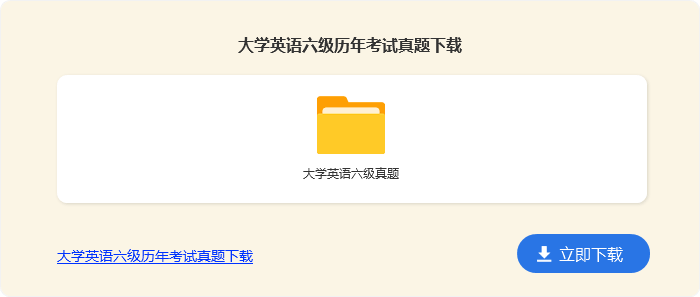
- 相关推荐
英语六级翻译强化练习题
翻译在遇到问题的同时也是在解决问题,因此要多加练习。小编整理了相关的内容,欢迎欣赏与借鉴。

六级翻译强化练习题
作为一种世代相袭的传统,中国人就餐时围桌而坐,人人手里都有一碗主食(staple food),炒菜放在桌子中央,大家一起食用。这一古老的风俗习惯反映了食物在中华文明史上的重要地位;占据餐桌中心位置的是炒菜,而不是鲜花,晚餐的主要话题常常是食物。菜肴的各种色彩和材料搭配,给人以美的'享受,共食一碗菜的习俗有助于家庭成员之间的团结和友谊。当然,在一些卫生意识比较强的地方,人们在共食放在餐桌中央的菜肴时,必须使用“公筷”或“公用”汤匙,以防疾病传染。
Traditionally, everyone at the Chinese dining table has his or her own bowl of staple food, while the dishes are placed in the middle of the dinner table to be shared by all. This age-old custom is one manifestation of the importance of food in Chinese civilization. It is the cooked dishes, rather than flowers, that serve as centerpieces on a Chinese table; food is frequently the main topic of dinner-time conversation. Variety in the color and texture of the dishes serves aesthetic ends, while the ritual of sharing the food from the same dish plates is conductive to family togetherness and friendship. In more health-conscious environments, however, only “public” chopsticks and spoons are used to remove food from the plates in the middle of the dinning-table, so as to prevent any possible spread of diseases.
六级翻译强化练习题
筷子是中餐桌上最有特色的用餐工具。全国各地的筷子大小基本一样,而用材的种类则各有不同,选材包括竹子、木材、玉石、象牙、塑料、银、金等。中国人使用筷子的方法很有艺术性,各人有各人的`方法,就好像签名一样,不尽一致。中国人一般都能随心所欲地用筷子夹起一粒米、一粒豌豆、一只滑溜溜的蘑菇或海参。对于那些用餐时只会使用刀叉的西方人来说,掌握用筷的方法和技巧开始时难度也许很大,也很有趣,需要很大的耐心,需要用心练习。
Chopsticks, or kuaizi, are the most distinctive eating tool at the Chinese dining table. Chopsticks, which are roughly uniform in size throughout China, can be made of a variety of materials, including bamboo, wood, jade, ivory, plastic, silver and gold. The way Chinese handle our chopsticks is quite artistic and varied from person to person like one's signature. An average Chinese can very easily pick up a single tiny grain of rice, or a tiny piece of peas, or a slippery mushroom or sea cucumber. For those Westerners who use only forks and knives for their meals, the mastery of the method and skills for using chopsticks may be quite challenging, and amusing, at the beginning. A lot of patience and concentrated practice is required. This is not only very necessary and but also very rewarding if they wish to enjoy a real Chinese dinner.
六级翻译强化练习题
北京是座有三千年历史的古城。早在公元前十一世纪,北京就是燕国的国都,因此北京有燕京之称。在以后的几千年里,北京又成为金、元、明、清各朝的`国都。北京是中国的六大古都之一,其他五个是西安、南京、洛阳、开封和杭州。北京是座既古老又年轻的城市,有许多名胜古迹。从故宫、天坛到颐和园,你们可以看到北京保留了许多昔日的风采。
Beijing is an ancient city with a history of 3,000 years. As early as the 11th century, B.C., it was the capital of the Kingdom of Yan; that's why Beijing is also known as Yanjing. In the few thousand years afterwards, Beijing again served as the capital for the Jin,Yuan, Ming, and Qing dynasties. Beijing is one of China's six ancient capitals; the other five are Xi’an,Nanjing, Luoyang, Kaifeng, and Hangzhou. Beijing is a city both old and young, with many places of historical interest and scenic beauty. From the Forbidden City, the Temple of Heaven, and the Summer Palace, you can see that Beijing has retained a lot of color of old Chinese life.
【英语六级翻译强化练习题】相关文章:
2016年英语六级翻译强化和练习:打车11-27
2016年英语六级翻译强化和练习:瓷器11-27
2016年英语六级翻译强化和练习:方言11-27
2016年英语六级翻译强化和练习:酒文化11-27
2016年英语六级翻译强化和练习:占座11-27
2016年英语六级翻译强化和练习:红楼梦11-27






